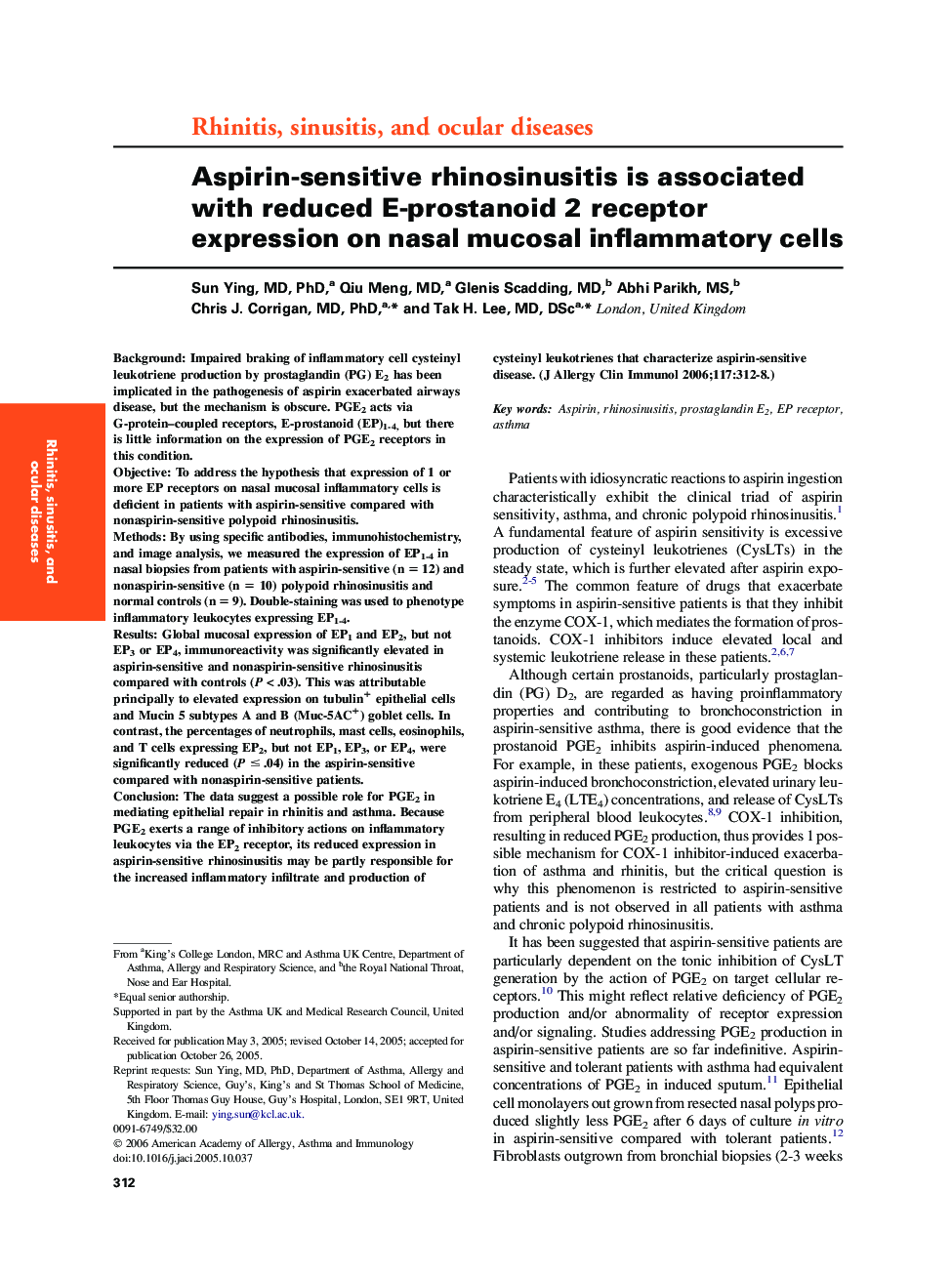| کد مقاله | کد نشریه | سال انتشار | مقاله انگلیسی | نسخه تمام متن |
|---|---|---|---|---|
| 3203259 | 1201992 | 2006 | 7 صفحه PDF | دانلود رایگان |

BackgroundImpaired braking of inflammatory cell cysteinyl leukotriene production by prostaglandin (PG) E2 has been implicated in the pathogenesis of aspirin exacerbated airways disease, but the mechanism is obscure. PGE2 acts via G-protein–coupled receptors, E-prostanoid (EP)1-4, but there is little information on the expression of PGE2 receptors in this condition.ObjectiveTo address the hypothesis that expression of 1 or more EP receptors on nasal mucosal inflammatory cells is deficient in patients with aspirin-sensitive compared with nonaspirin-sensitive polypoid rhinosinusitis.MethodsBy using specific antibodies, immunohistochemistry, and image analysis, we measured the expression of EP1-4 in nasal biopsies from patients with aspirin-sensitive (n = 12) and nonaspirin-sensitive (n = 10) polypoid rhinosinusitis and normal controls (n = 9). Double-staining was used to phenotype inflammatory leukocytes expressing EP1-4.ResultsGlobal mucosal expression of EP1 and EP2, but not EP3 or EP4, immunoreactivity was significantly elevated in aspirin-sensitive and nonaspirin-sensitive rhinosinusitis compared with controls (P < .03). This was attributable principally to elevated expression on tubulin+ epithelial cells and Mucin 5 subtypes A and B (Muc-5AC+) goblet cells. In contrast, the percentages of neutrophils, mast cells, eosinophils, and T cells expressing EP2, but not EP1, EP3, or EP4, were significantly reduced (P ≤ .04) in the aspirin-sensitive compared with nonaspirin-sensitive patients.ConclusionThe data suggest a possible role for PGE2 in mediating epithelial repair in rhinitis and asthma. Because PGE2 exerts a range of inhibitory actions on inflammatory leukocytes via the EP2 receptor, its reduced expression in aspirin-sensitive rhinosinusitis may be partly responsible for the increased inflammatory infiltrate and production of cysteinyl leukotrienes that characterize aspirin-sensitive disease.
Journal: Journal of Allergy and Clinical Immunology - Volume 117, Issue 2, February 2006, Pages 312–318